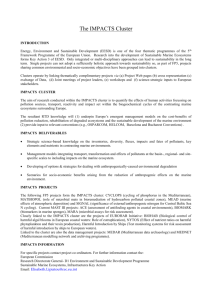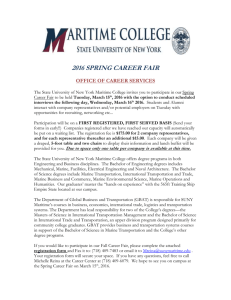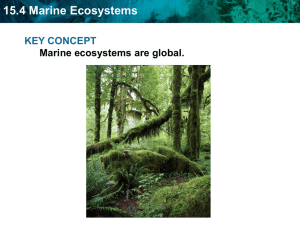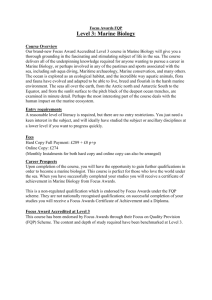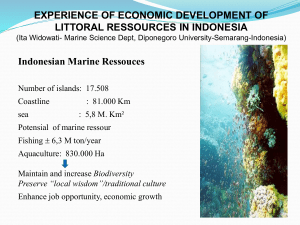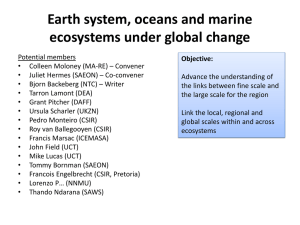Sustained observations of the sea
advertisement
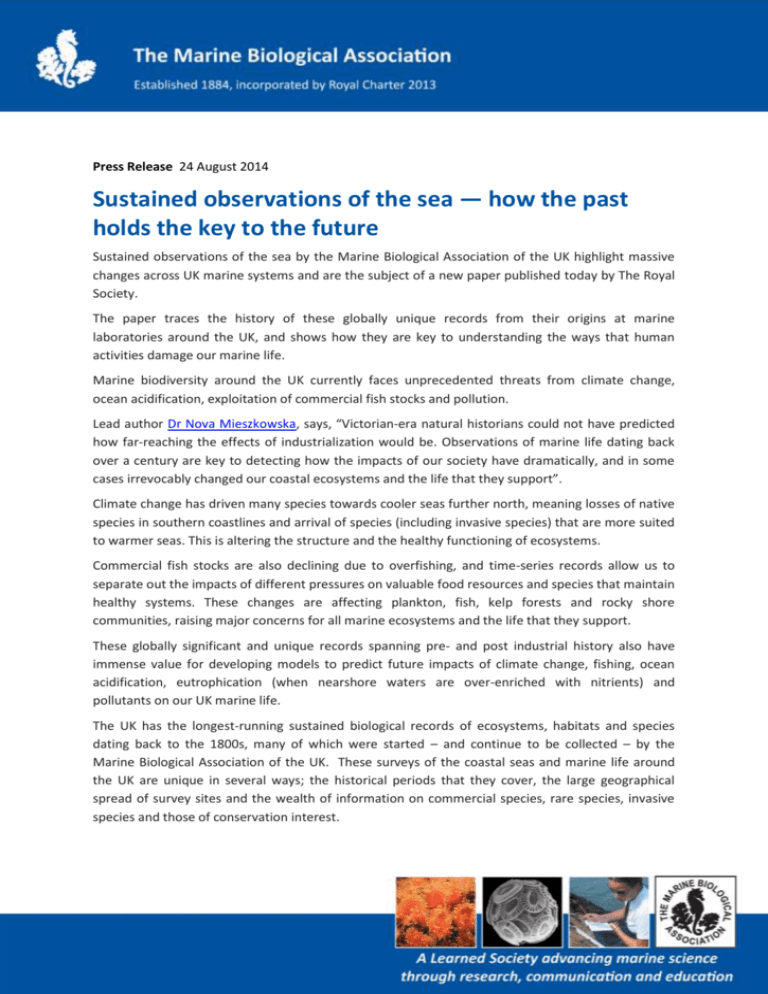
Press Release 24 August 2014 Sustained observations of the sea — how the past holds the key to the future Sustained observations of the sea by the Marine Biological Association of the UK highlight massive changes across UK marine systems and are the subject of a new paper published today by The Royal Society. The paper traces the history of these globally unique records from their origins at marine laboratories around the UK, and shows how they are key to understanding the ways that human activities damage our marine life. Marine biodiversity around the UK currently faces unprecedented threats from climate change, ocean acidification, exploitation of commercial fish stocks and pollution. Lead author Dr Nova Mieszkowska, says, “Victorian-era natural historians could not have predicted how far-reaching the effects of industrialization would be. Observations of marine life dating back over a century are key to detecting how the impacts of our society have dramatically, and in some cases irrevocably changed our coastal ecosystems and the life that they support”. Climate change has driven many species towards cooler seas further north, meaning losses of native species in southern coastlines and arrival of species (including invasive species) that are more suited to warmer seas. This is altering the structure and the healthy functioning of ecosystems. Commercial fish stocks are also declining due to overfishing, and time-series records allow us to separate out the impacts of different pressures on valuable food resources and species that maintain healthy systems. These changes are affecting plankton, fish, kelp forests and rocky shore communities, raising major concerns for all marine ecosystems and the life that they support. These globally significant and unique records spanning pre- and post industrial history also have immense value for developing models to predict future impacts of climate change, fishing, ocean acidification, eutrophication (when nearshore waters are over-enriched with nitrients) and pollutants on our UK marine life. The UK has the longest-running sustained biological records of ecosystems, habitats and species dating back to the 1800s, many of which were started – and continue to be collected – by the Marine Biological Association of the UK. These surveys of the coastal seas and marine life around the UK are unique in several ways; the historical periods that they cover, the large geographical spread of survey sites and the wealth of information on commercial species, rare species, invasive species and those of conservation interest. The citation for this article is: Mieszkowska N, Sugden H, Firth LB, Hawkins SJ. 2014 The role of sustained observations in tracking impacts of environmental change on marine biodiversity and ecosystems. Phil. Trans. R. Soc. A 20130339. http://dx.doi.org/10.1098/rsta.2013.0339 Ends Notes for editors: Lead author of the paper, Nova Mieszkowska, is available to discuss the findings - her mobile number is 07848028471 The Marine Biological Association (MBA) is a professional body for marine scientists with some 1400 members world-wide. Since 1884 the MBA has established itself as a leading marine biological research organization contributing to the work of several Nobel Laureates and over 170 Fellows of the Royal Society. In recognition of its long and eminent history and its status within the field of marine biology, the MBA was awarded a Royal Charter in 2013. The Laboratory Citadel Hill Plymouth PL1 2PB t: 01752 633207 f: 01752 633102 e: sec@mba.ac.uk www.mba.ac.uk



